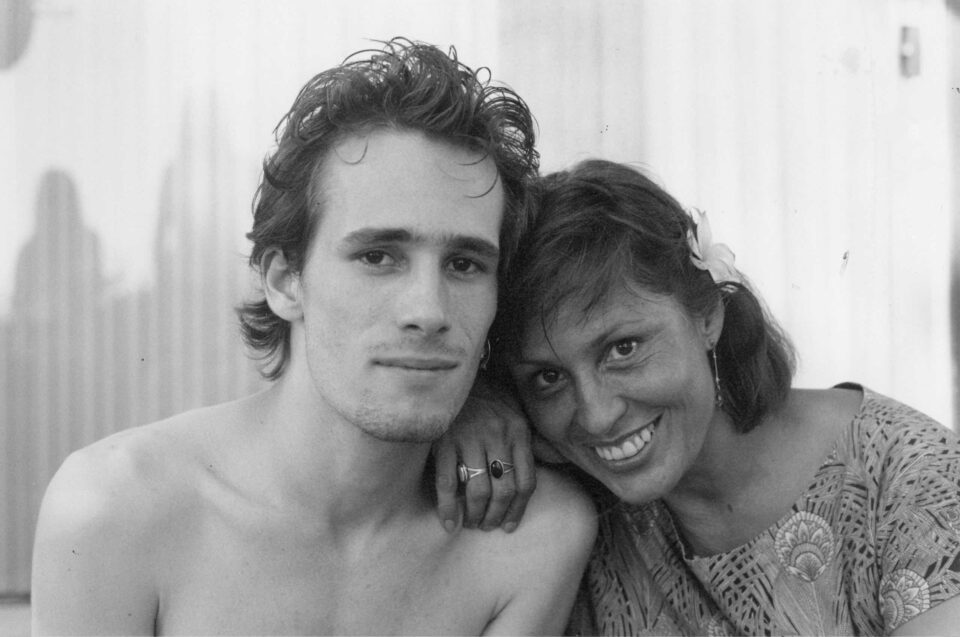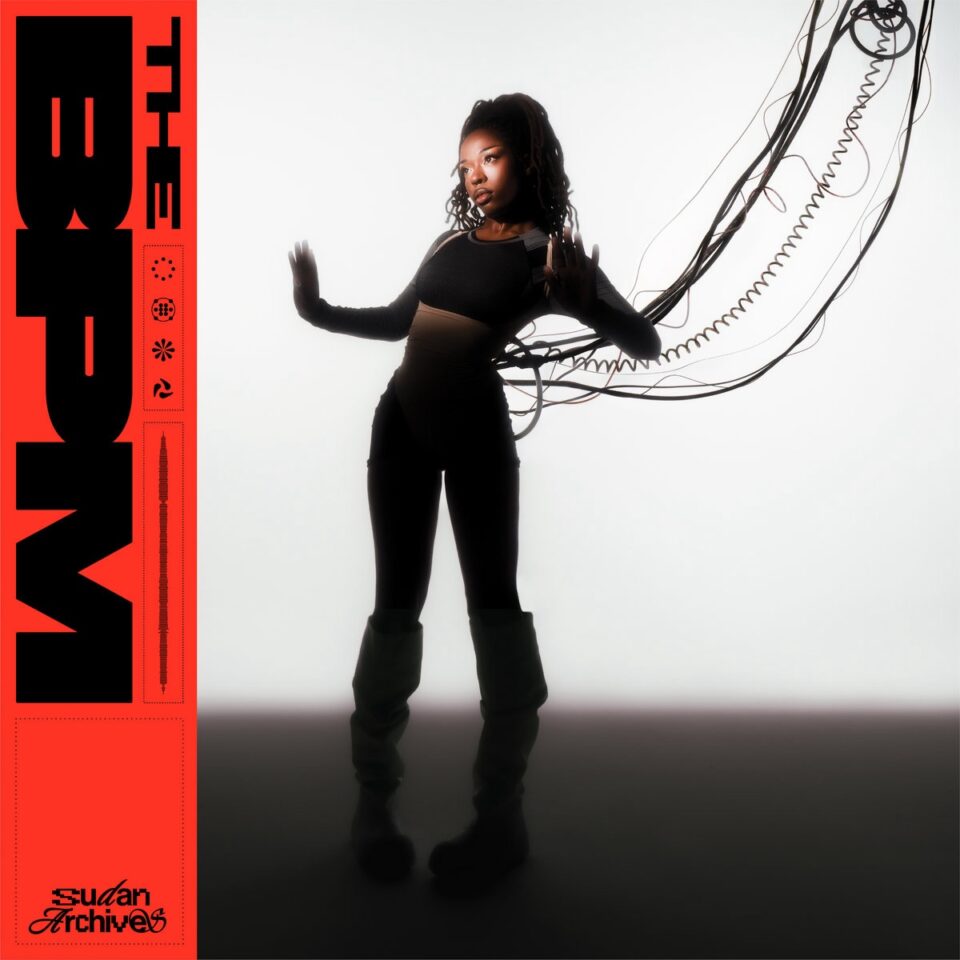“I’ve actually done my best not to think about this for 30 years, let alone talk out loud about it… I’ve gone as far from being an artist in New York City as one can imagine. And I think that is [largely] because of his death.” — Rebecca Moore
“Writing his second record was so daunting. It was a huge step forward for him—but I haven’t been able to listen [to it]. That might sound crazy, but I can’t.” — Joan Wasser
“No one has ever loved me more or better than he.” — Mary Guibert
The first three people we see in the new documentary It’s Never Over, Jeff Buckley are arguably the three most significant women in the late singer’s life: his ex-girlfriends Rebecca Moore and Joan Wasser, and his mother Mary Guibert (we hear more from them—as well as from his bandmates, peers, and record executives—later in the film). The road of rock and roll is strewn with beautiful, doomed figures from every era. One of the most beautiful and doomed figures of the ’90s was Buckley, the genre-defying singer-songwriter whose father was the late Tim Buckley. In my opinion, he was also the single greatest musician to emerge during that decade.
Directed by Amy Berg and executive produced by Brad Pitt, It’s Never Over starts, more or less, at the beginning. Guibert (who is also one of the film’s producers) was the daughter of Panamanian immigrants. She met Tim Buckley in their high school French class, began dating him, and was pregnant with Jeff at the tender age of 17. Tim may have been a great singer in his own right, but he wasn’t much of a partner or father. “I knew from the fifth month that I was never gonna see Tim again,” says Guibert in the film. “This child was on me.” Indeed, Tim’s absence was something Jeff wrestled with throughout his life. Except for spending a week with him shortly before his death in 1975 (when Jeff was only eight), he never saw his father.
The film then proceeds through Jeff’s high school years in Southern California. He became obsessed with music—Led Zeppelin in particular—at an early age, mastered guitar, and played in bands. Aside from that, however, it was not a good time for him. “[The] high school bullies called me ‘f****t,’” he remembers. “And [their] fucking new wave girlfriends stenciled ‘geek’ on my Ovation guitar case.” After drifting through his late teens and early twenties, Jeff was invited to perform at a tribute to his father at St. Ann’s church in Brooklyn in 1991. This would prove to be significant in more ways than one. Before the concert, no one really knew who Jeff was. After he sang his father’s “I Never Asked to Be Your Mountain” and “Once I Was,” he left with 60 business cards. As the late Hal Willner, who produced the show, said, “It became Jeff’s concert.” That was also the night he met Rebecca Moore, who became his muse.
From there, It’s Never Over charts Jeff’s move to NYC and his “cafe days”—the period where he honed his chops playing Sin-é and other small NYC clubs—to his signing with Sony/Columbia to the release of Grace, the one studio album he completed in his lifetime. Comprised of seven originals and three covers, Buckley’s 1994 debut sounded like nothing before or since. His influences ranged from Miles Davis to Morrissey, from Leonard Cohen to Led Zeppelin, and from Nina Simone to Nusrat Fateh Ali Khan. But he synthesized all these into something that defied categorization and was uniquely his. It didn’t hurt that he had a four-octave range.
We hear about the recording of Grace and its attendant tours from a host of people, including his original drummer Matt Johnson and rhythm guitarist Michael Tighe, record executives, photographer Merri Cyr, and both Rebecca Moore and Joan Wasser. One of the film’s lighter moments comes when Wasser—to whom Buckley was engaged at the time of his death— describes the night she and Jeff met while on tour in Iowa. “He was rocking an I-am-worshiping-a-goddess vibe,” she remembers. “Not subtle!”

The making of his sophomore album—which was to be called My Sweetheart the Drunk—proved difficult for Jeff for a number of reasons. There was the pressure to follow up the first album, of course. There were also musical differences along the way (Johnson left the band after the Grace tour, Tom Verlaine’s production style didn’t suit the band). There was also the fact that he owed Sony a lot of money.
Jeff’s death at the age of 30 when he drowned in Memphis left a lot more questions than answers. If I was confused before watching this film, I may have been even more confused after. Drugs were not a factor in his death, but that doesn’t mean it wasn’t a passive suicide. At best, swimming in the Mississippi River (with heavy boots, no less) was reckless. But there were other things. At one point in the film, a reporter asks him the annoying question, “Where do you see yourself 10 years from now?” To which Jeff replies, “I don’t see myself 10 years from now… Just a void.” The week before his death, he was calling loved ones, leaving rambling messages that sometimes hinted at finality. Wasser says he even told her, “I’m not gonna last that long.” Part of this “script,” as she says, was because his father died so young.
As a side note, some of Jeff’s lyrics came to seem eerie in light of his drowning, too. The most obvious one is “Nightmares by the Sea,” a song from the posthumous Sketches for My Sweetheart the Drunk collection which contains the lyric “Stay with me under these waves tonight / Be free for once in your life tonight.” Then there’s “So Real,” from Grace, where he sings, “I couldn’t awake from the nightmare that sucked me in and pulled me under.”
If I didn’t come away from It’s Never Over with more insight into Jeff and his death, I still thought it was a remarkable film. Berg did a fine job telling his story. Michael Tighe seems like someone you want to hang out with over a beer. And all the women in his life—particularly Mary Guibert—deserve kudos for being so painfully open. It’s Never Over is a must-see for any Jeff Buckley fan.









